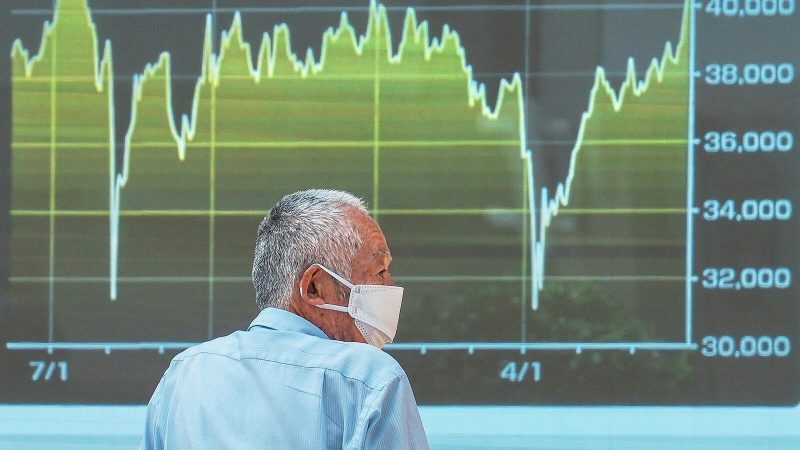
Global markets experienced a mixed bag on Tuesday, following another day of record-breaking gains for US stocks. This continued recovery from a significant springtime sell-off, roughly 20%, left many investors wondering about the sustainability of this upward trend.
European markets showed signs of hesitation. Britain’s FTSE 100 dipped 0.2%, Germany’s DAX fell 0.4%, and France’s CAC 40 dropped 0.5%. Futures for the S&P 500 and Dow Jones Industrial Average also indicated a slight downturn, hinting at potential market correction.
Asia presented a more varied picture. Japan’s Nikkei 225 experienced a more substantial 1.2% decline, despite positive results from the central bank’s Tankan survey showing improved business sentiment. Conversely, the Shanghai Composite index rose 0.4%, boosted by a three-month high in China’s official manufacturing PMI. South Korea’s KOSPI also saw a positive performance, up 0.6%, driven by strong export figures, especially in semiconductors, ships, and health products. Australia’s S&P/ASX 200 saw a minor decrease, while Thailand’s SET experienced a significant 1.7% jump following political developments.
The Philippine PSEi also saw gains, adding 0.9%. This global market fluctuation underscores the complex interplay of factors influencing investor confidence, from economic indicators and political events to trade negotiations and corporate earnings.
The US market’s continued surge is particularly noteworthy. The S&P 500 climbed 0.5%, the Dow Jones gained 0.6%, and the Nasdaq composite rose 0.5%. This rally has been attributed to several factors, including the rescission of a planned Canadian tax on US tech firms and the resumption of trade talks between the US and Canada. Oracle’s strong performance, fueled by significant new cloud service agreements, and GMS’s acquisition by a Home Depot subsidiary also contributed to the positive sentiment.
However, experts caution that this rebound might carry inherent risks. The potential resumption of escalated tariffs remains a concern, as many of President Trump’s previously announced tariffs are set to come back into effect on July 9th. The Deutsche Bank’s strategists warn that the current market recovery could increase the likelihood of renewed trade tensions and subsequent economic uncertainty.
The fluctuating oil prices, with benchmark US crude oil down 4 cents and Brent crude falling 7 cents, added another layer of complexity to the overall market picture. The US dollar also weakened slightly against the Japanese yen, while the euro strengthened against the dollar. Overall, Tuesday’s market activity highlighted the volatility and interconnectedness of global financial markets, with various factors influencing investor behavior and market performance.










